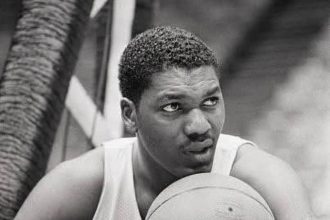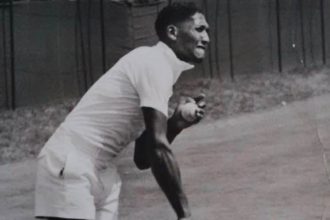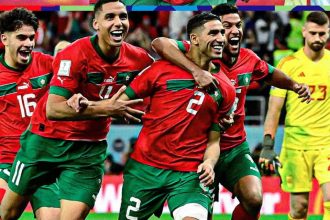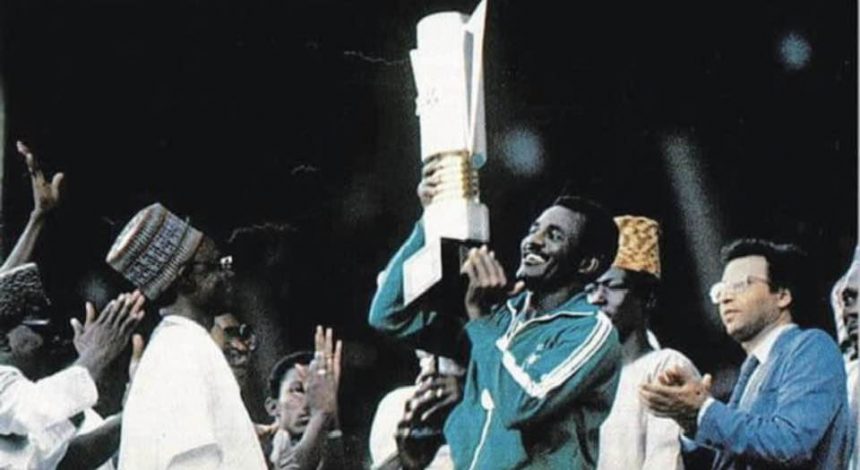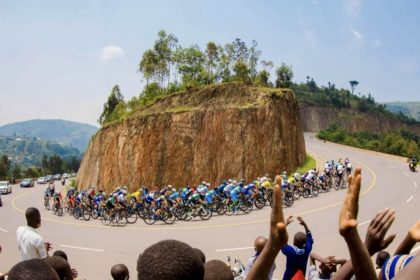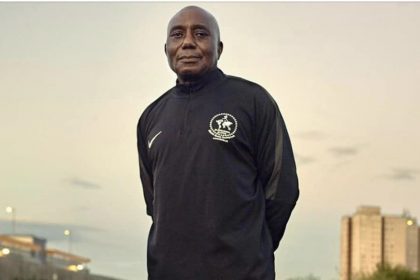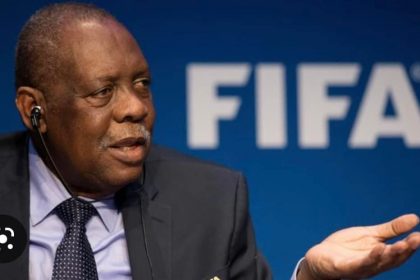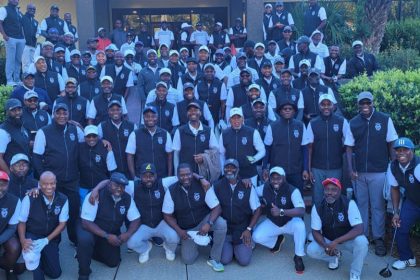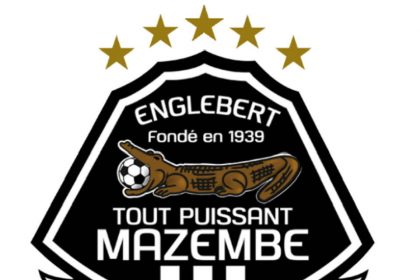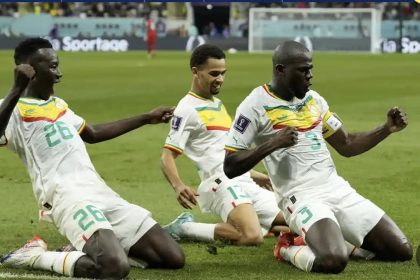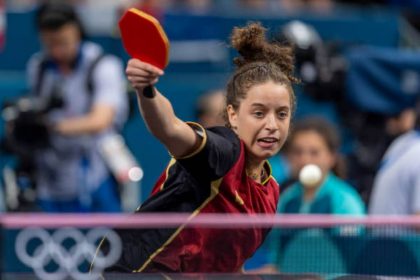Excitement levels are at an all-time high as the 34th edition of the Africa Cup of Nations (AFCON) kicks off today in Abidjan. The tournament, which showcases Africa’s finest players, is being held in Ivory Coast, a country in the southern coast of West Africa. The group stages start with host country facing Guinea-Bissau at the Alassane Quattara Stadium, Abidjan. Twenty-four teams are playing in the tournament as holders Senegal look to retain their title.
The Africa Cup of Nations, also called the Total Energies Africa Cup of Nations for sponsorship reasons, is the foremost football tournament organized by the Confederation of African Football (CAF). The competition, which determines the continental champion of Africa, is contested by CAF members’ senior men’s national teams. The idea of holding a continental championship was proposed by a Sudanese Abdel Halim Mohamed. On 8 June 1956, a meeting was held at the Avenida Hotel in Lisbon, Portugal, during the third FIFA congress to deliberate over the idea of establishing a football confederation in the continent and launching a continental championship. Few weeks after this meeting the founding assembly was held and a friendly match between Egypt and Sudan was held in Khartoum, announcing the beginning of AFCON on 10 February 1957.
The first edition of the tournament was held in 1957 in Sudan, with Egypt, Ethiopia and the host country being the three participating countries. There was no qualification for this tournament, with Egypt emerging the first continental champions after defeating hosts Sudan in the semi-final and Ethiopia in the final. Two years later, Egypt hosted the second Africa Cup of Nations in Cairo with the participation of the same three teams. The North African country again won the second edition by defeating Sudan in the final. The competition grew to include nine teams for the third Africa Cup of Nations in 1962 in Addis Ababa, and for the first time, there was a qualification round to determine which four teams would play for the title. Hosts Ethiopia and reigning champion Egypt received automatic berths and were joined in the final four by Nigeria and Tunisia. Egypt made its third consecutive appearance, but it was Ethiopia that emerged as victors after first beating Tunisia and then downing Egypt in extra time. In 1968, the tournament format expanded to include eight of the 22 teams that entered in the qualifying series. The 8 teams were distributed in two groups of four to play single round-robin matches, with the top two teams of each group advancing to semi-finals, a system that remained in use for the finals until 1992. The Democratic Republic of Congo won its first title, beating Ghana in the final. Starting with the 1968 tournament, the competition was regularly held every two years in even-numbered years.
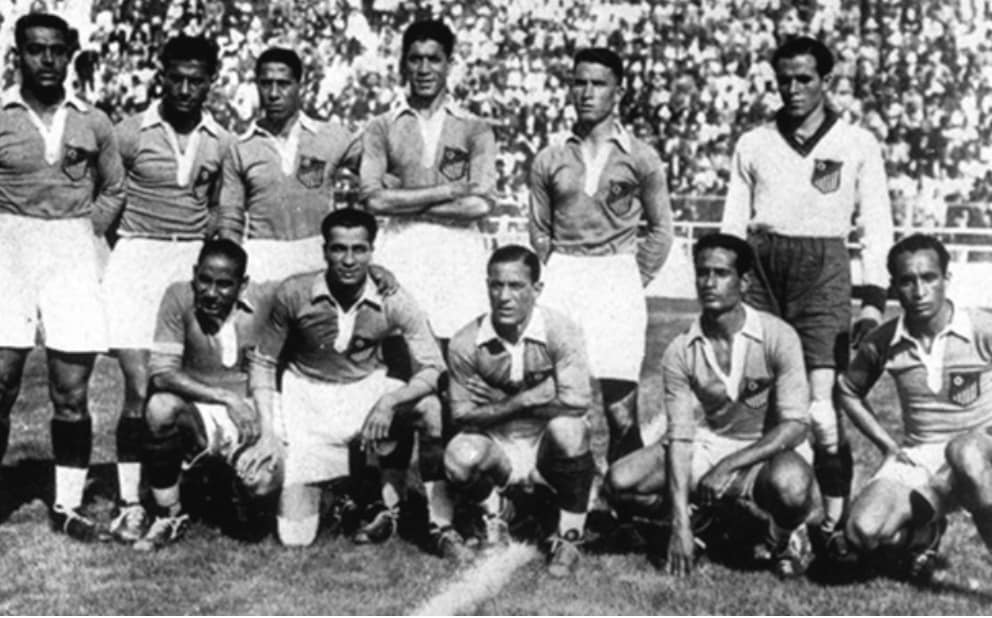
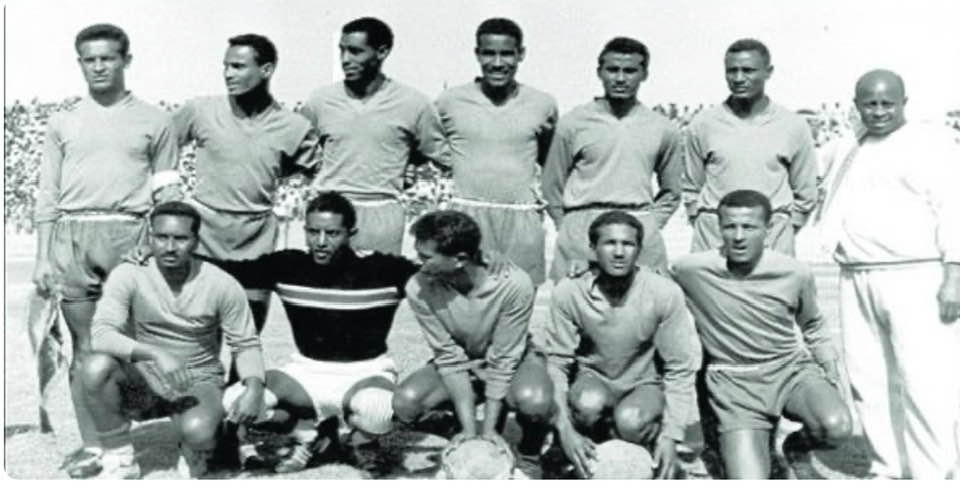
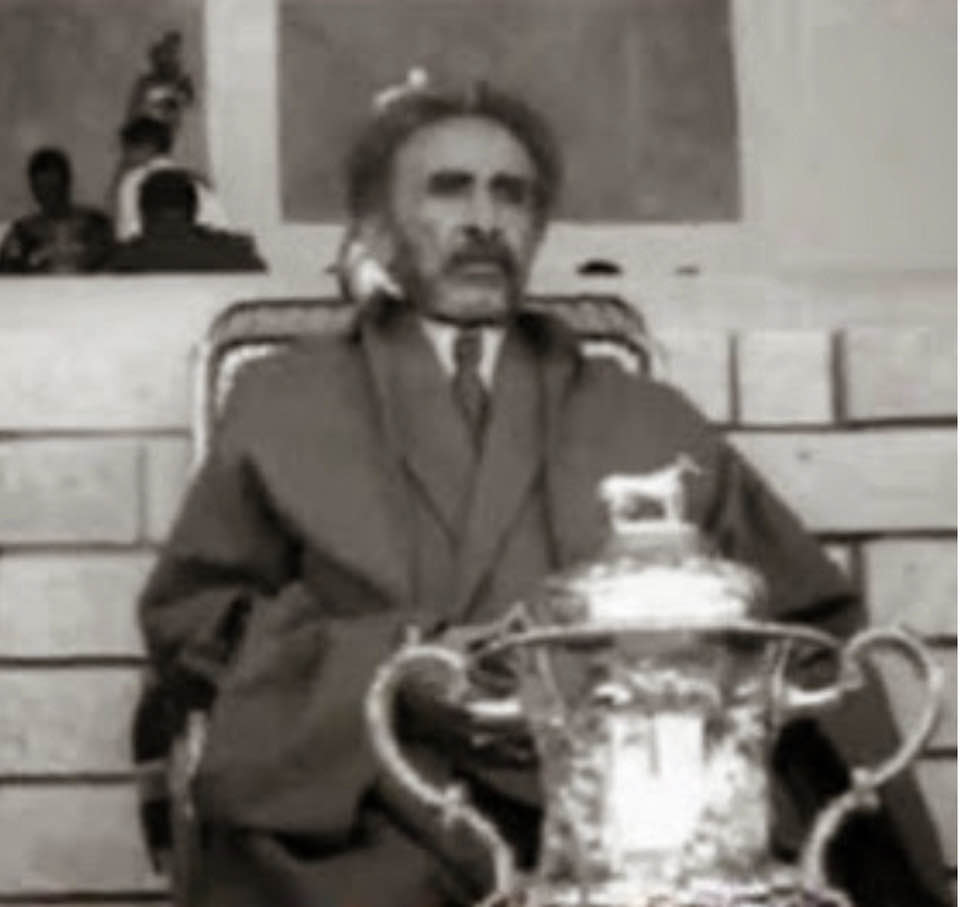
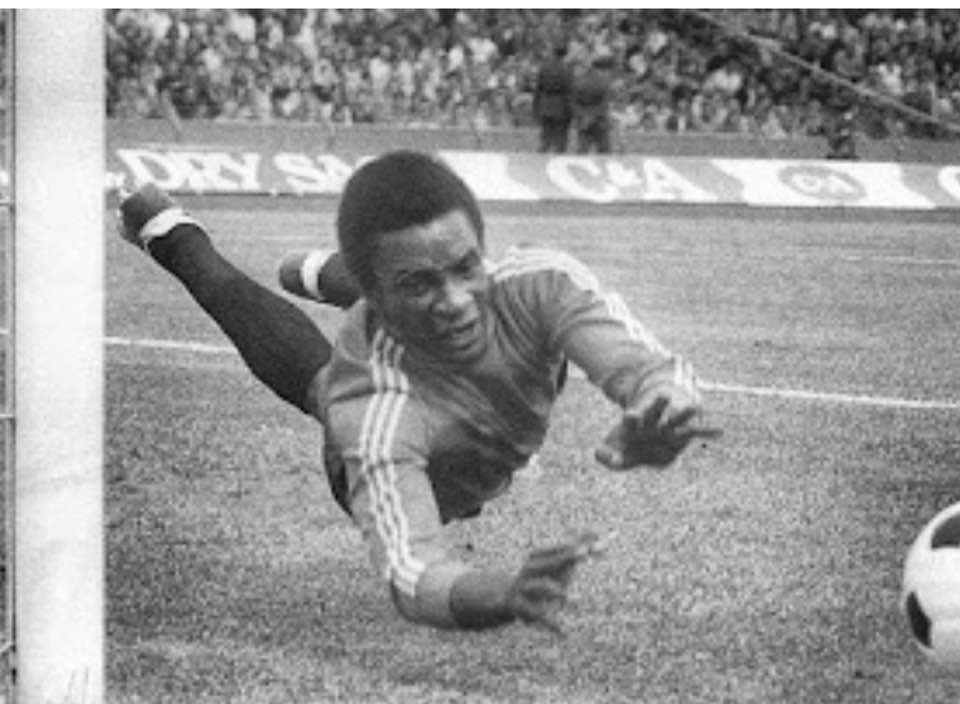
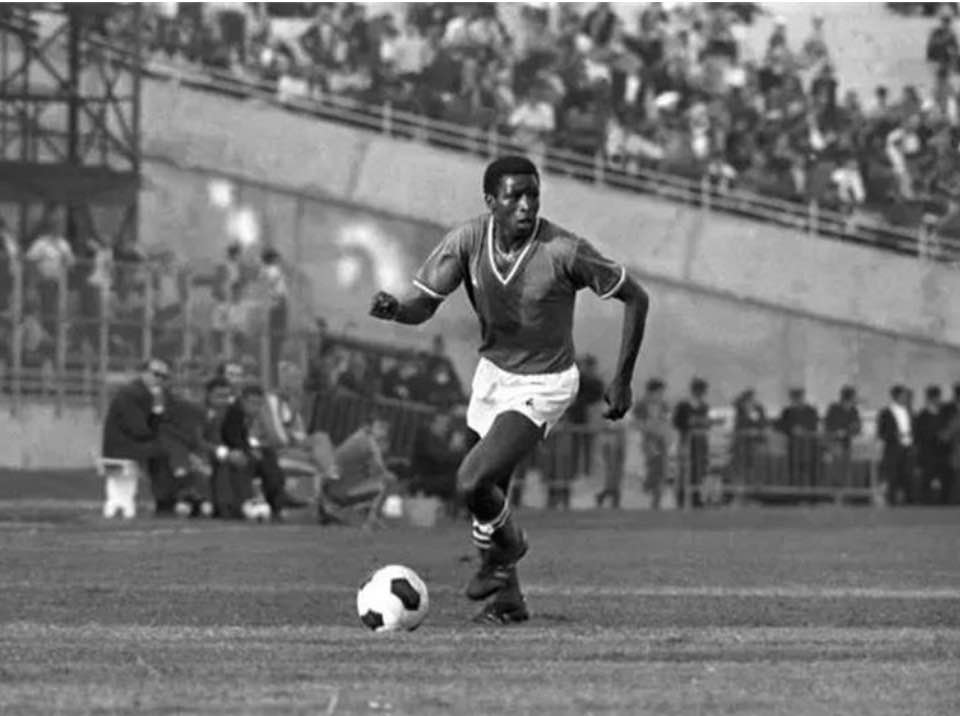
Africa Cup of Nations was televised for the first time in 1970, as the hosts Sudan lifted the trophy after defeating Ghana—who were playing their fourth consecutive final.
When Ahmad Ahmad of Madagascar became the President of CAF in March 2017, he proposed further changes to the championship, which were switching the timing of the competition from January to the Northern Hemisphere summer and expanding from 16 to 24 teams, effective from the 2019 edition. On 20 July 2017, the CAF Executive Commission approved the propositions at a meeting in Rabat, Morocco. Algeria won the 2019 edition, achieving a 1-0 victory against Senegal in the final.
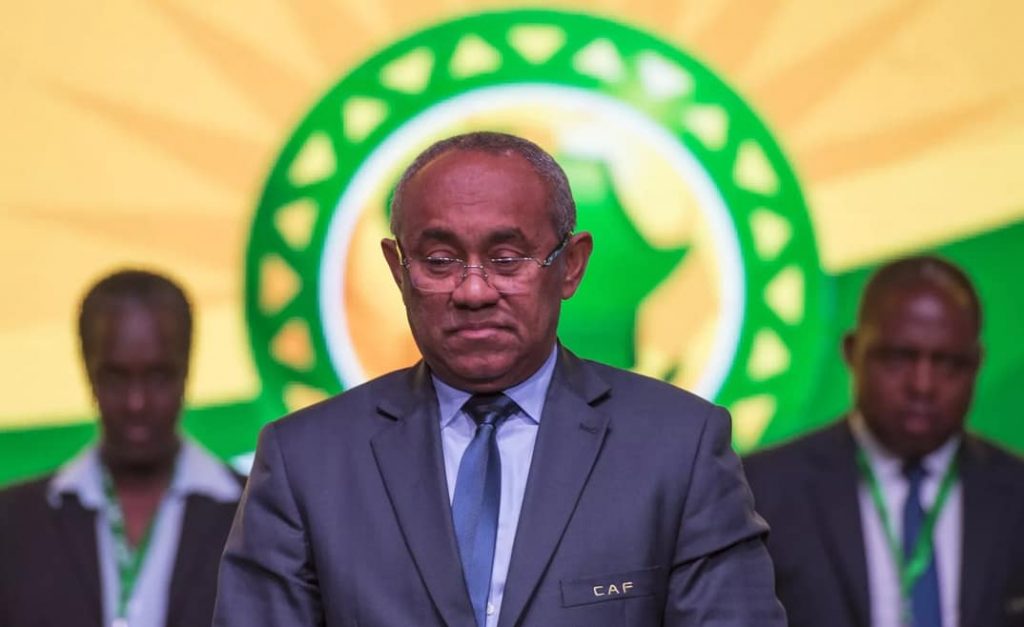
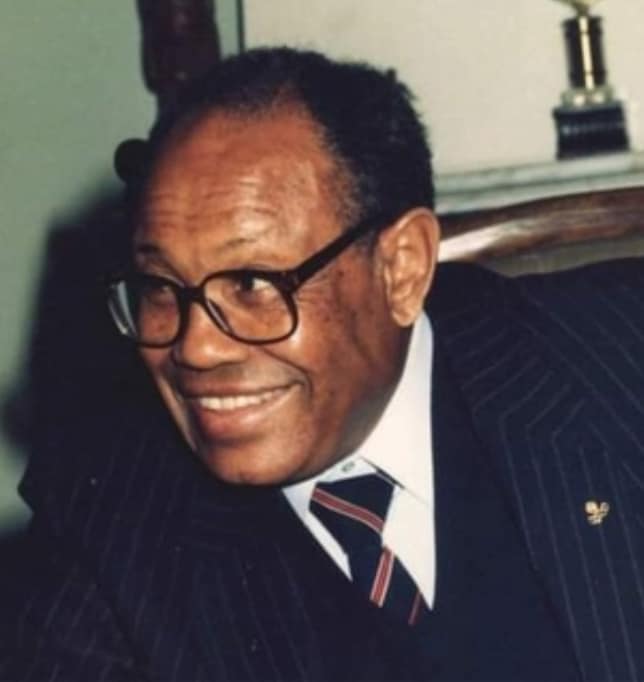
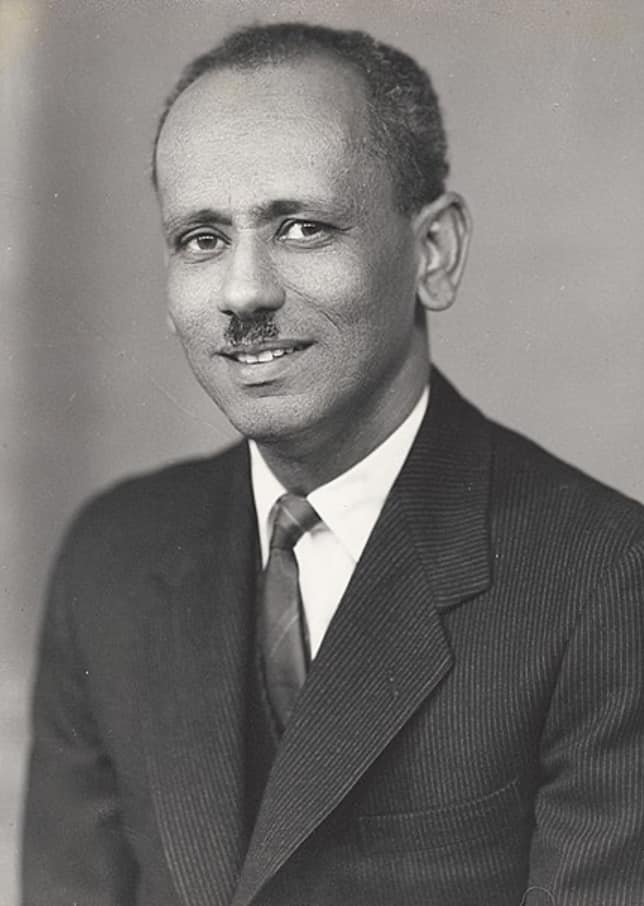
The third CAF president from 1968 to 1972 and as acting president from 1987 to 1988
The 2021 edition, hosted by Cameroon was postponed to 2022 due to the COVID-19 pandemic. CAF increased the cash prize for the winner from $4.5 million to $5 million for the 2021 edition while the second best team will get $2.75 million. Senegal won the tournament for the first time after beating Egypt on penalties in the final.
Egypt is the most successful nation in the cup’s history, winning the tournament seven times. Three trophies have been awarded during the tournament’s history, with Ghana, and Cameroon winning the first two versions to keep after each of them won a tournament three times. The current trophy was first awarded in 2002. Egypt won an unprecedented three consecutive titles in 2006, 2008, and 2010. In 2013, the tournament format was switched to being in odd-numbered years so as not to interfere with the FIFA World Cup.
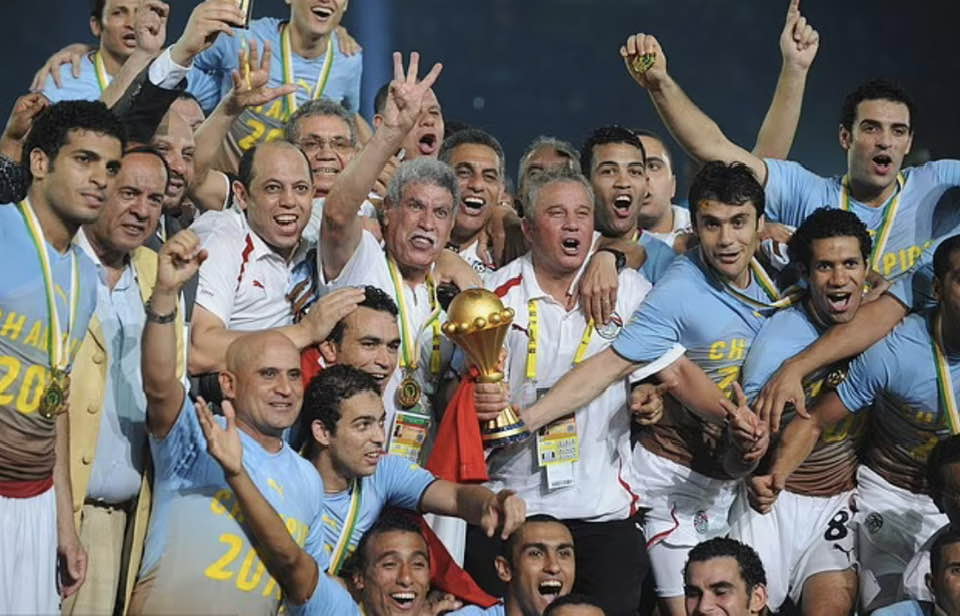
CAF initially restricted the number of foreign based footballers representing each country participating in AFCON to two each in the thinking of helping the local football to grow in the continent. Alphonse Niangou of Congo Brazzaville, who played for Standard Leige in Belgium, was the first known Europe-based African footballer to participate in AFCON when he became the only professional player in 1968 edition. The Cameroonian duo of Gabriel Abossolo and Emmanuel Koum followed in the footsteps of Niangou by coming from France to feature in the tournament two years later.
By 1982, CAF noticing the huge exodus of African footballers to the more lucrative European leagues liberalized their stand on the restrictions of foreign-based players in AFCON and Cameroon became the first beneficiary of this relaxed rule when an historic surge of 14 foreign based players played in AFCON 1984 that was hosted by Ivory Coast with six of them in the Cameroon squad that won the title.
Since 1984, the global appeal of the championship has grown exponentially because of the class players from Europe bring to the competition. By the 1986 AFCON in Egypt, the ranks of players from outside the continent have risen to 28 and by AFCON 1988 in Morocco 46 foreign based players took part, only Kenya and Egypt were without at least a foreign player. The expanded 1992 AFCON in Senegal was the first time that all the 12 teams have at least a foreign player in its squad and the pattern has remained same ever since.
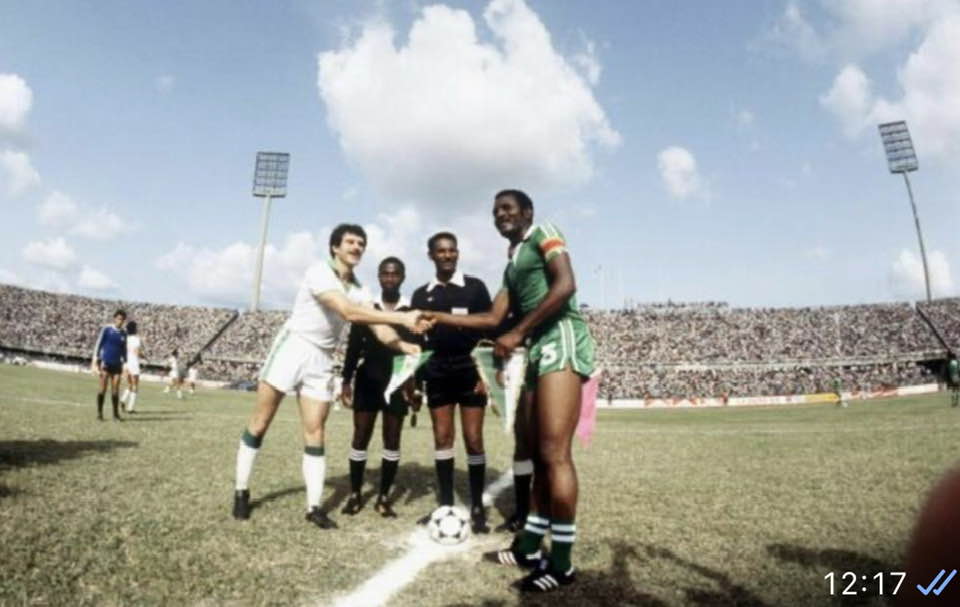
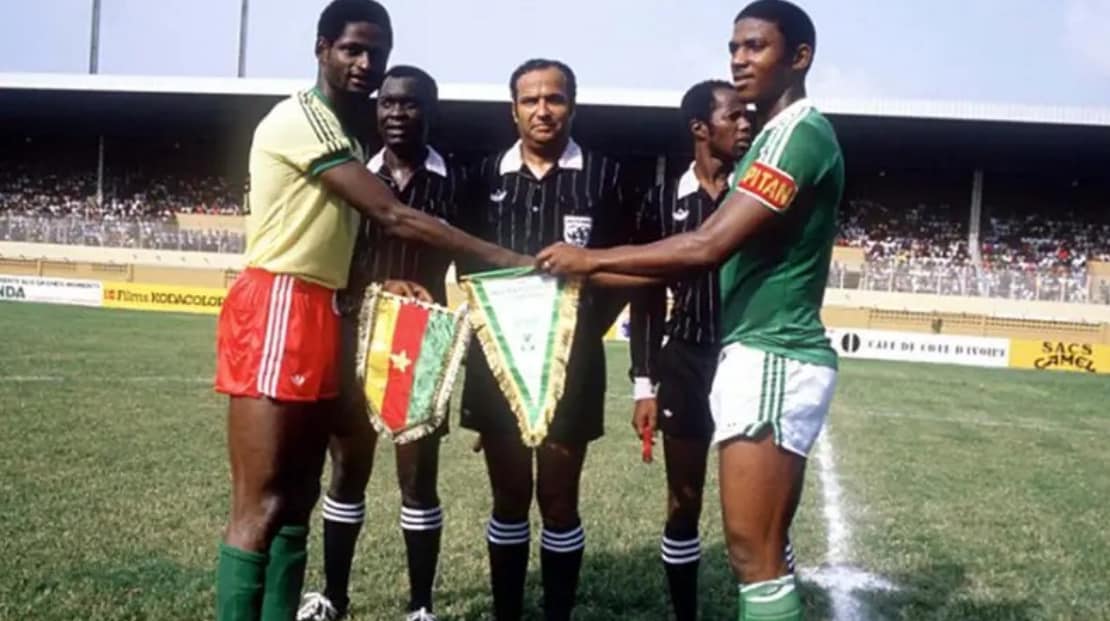
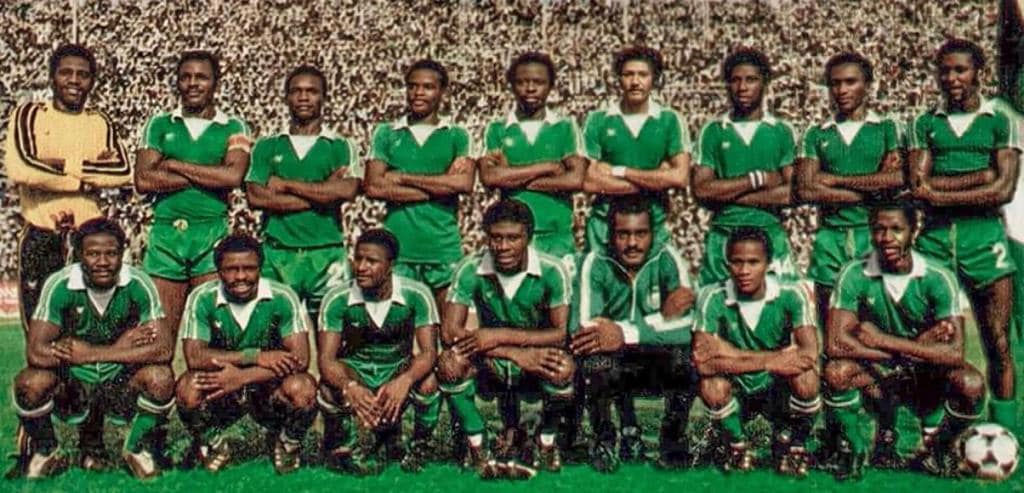
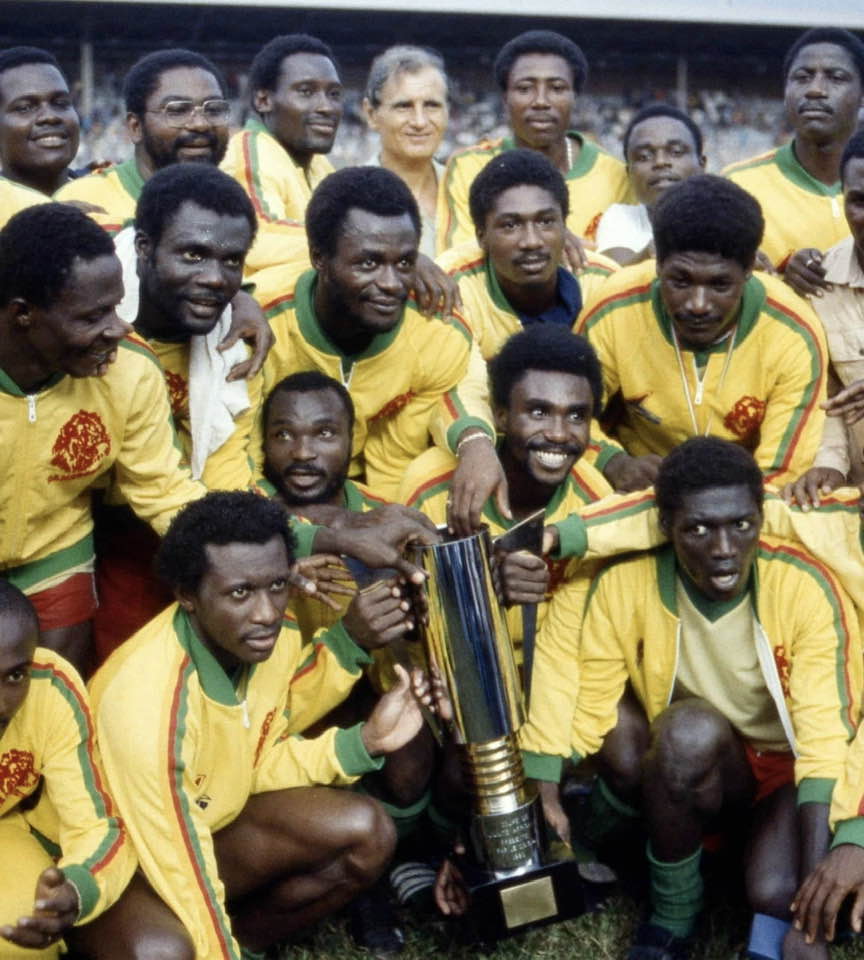
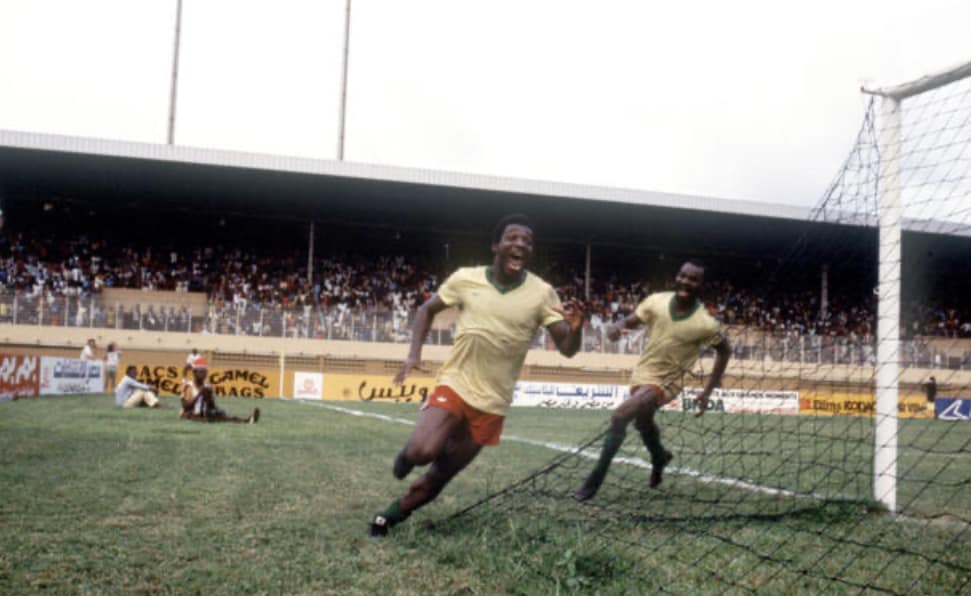
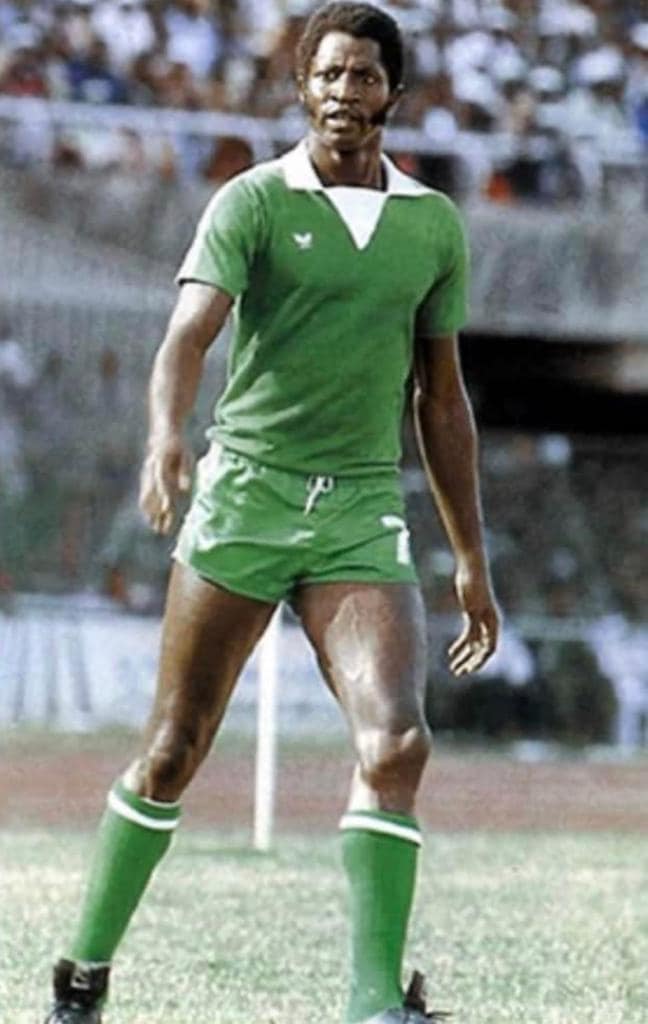
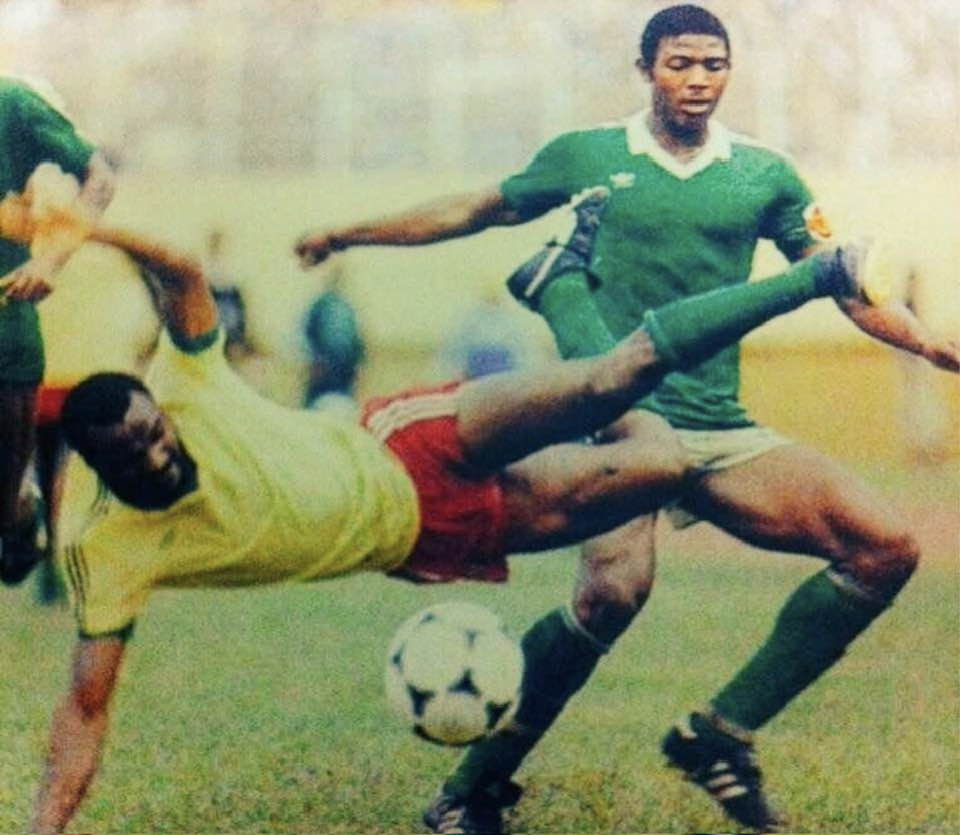
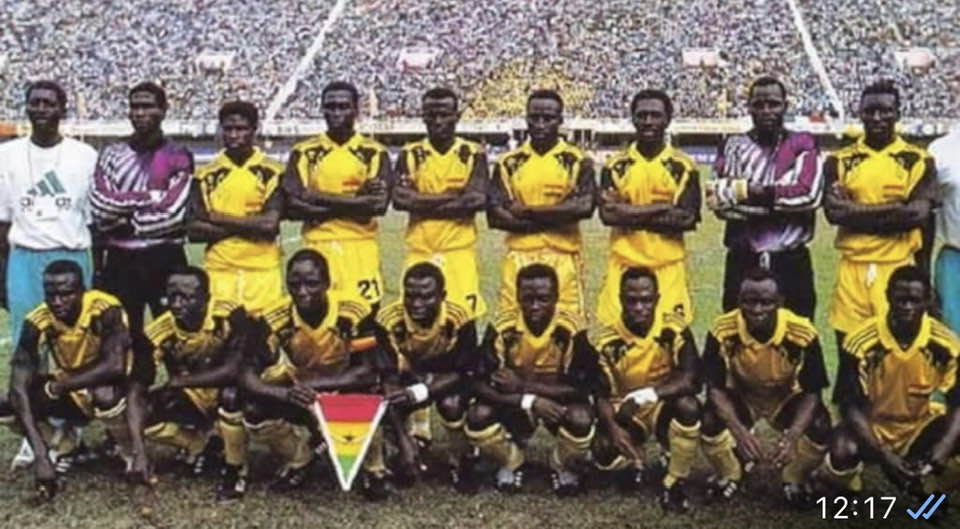
From the first Europe-based professional in the 1968 edition, AFCON has grown exceedingly to a championship completely dominated by Europe-based players. By the time AFCON 2023 kicks off today, 13th January 2024, 354 players plying their trades across 42 European countries will proudly don the colours of their countries with just 144 players coming from the Africa continent, 29 from Asia, five from North America and one from the South American country of Brazil. The bulk of the Europe-based players are coming from France and England, with 88 of the players coming from the French leagues and 53 from the English leagues. Turkish league is next with 33 players, while 31 will be coming from Spain, 27 from Portugal, 21 from Italy, 20 from Belgium and 18 from Germany to complete the top nine European leagues contributing global glamour to the increasingly popular championship. Saudi Pro League has the highest number of players from Asia with 21 players, obviously because of the new money introduced to attract foreign players into the newly rebranded league system in the Emirate, followed by Qatar with seven.
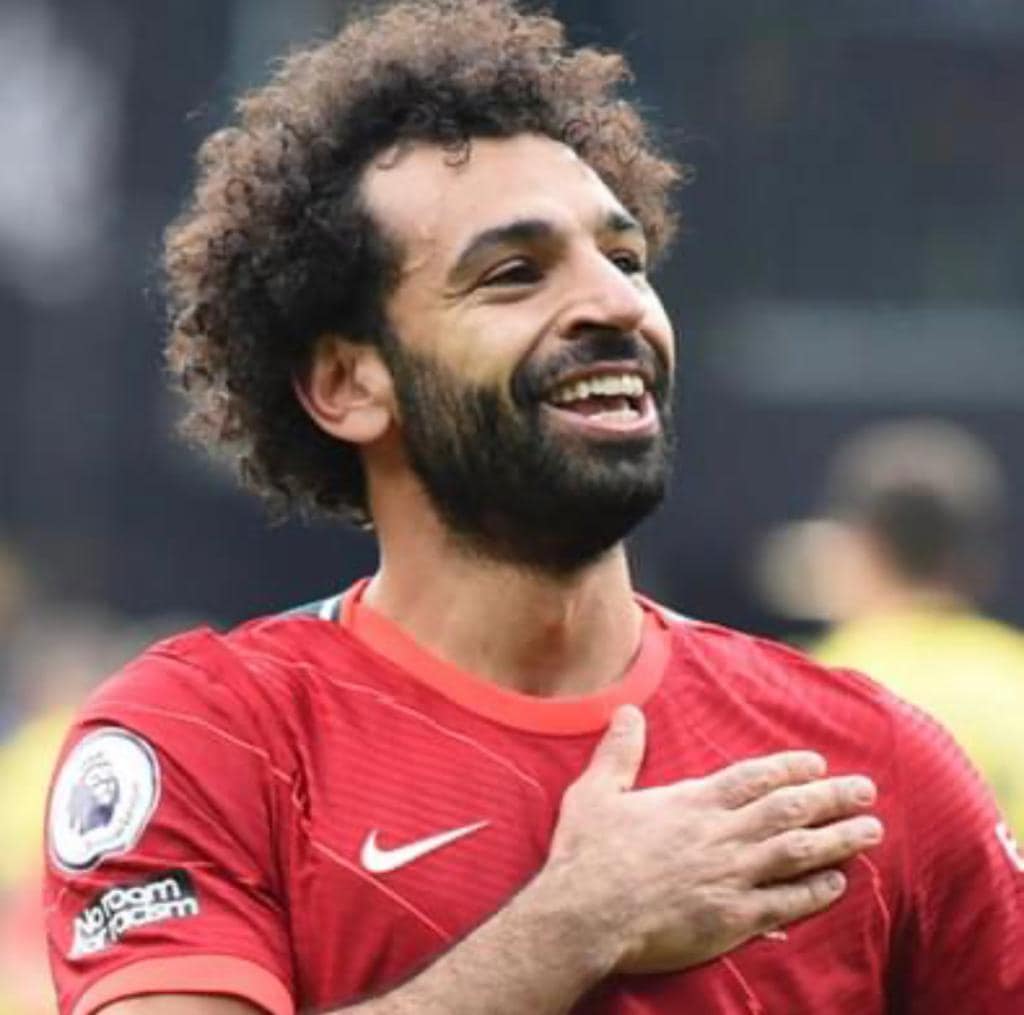
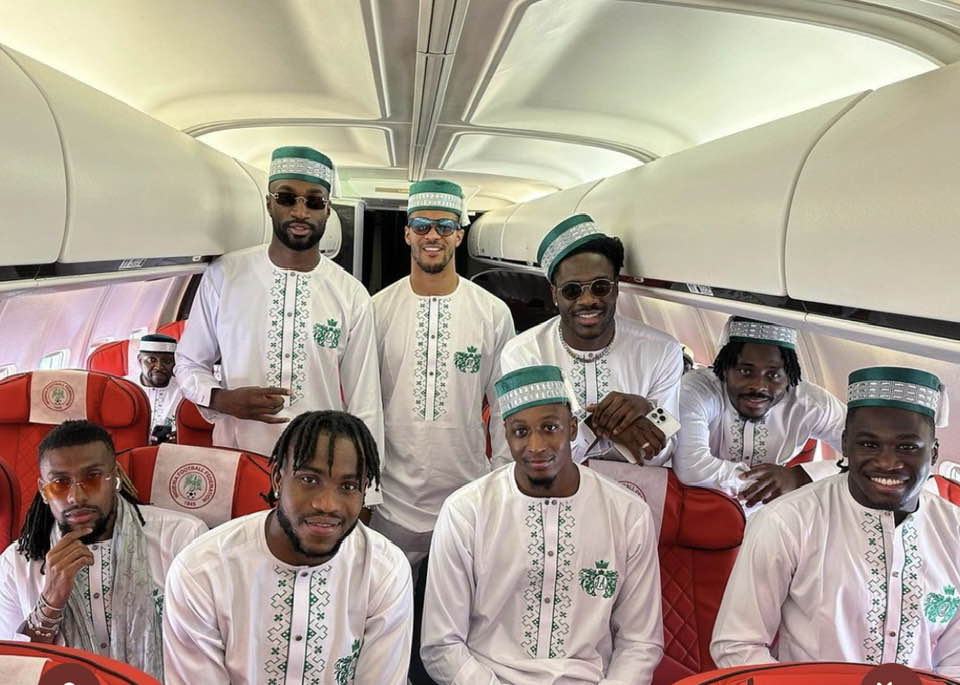
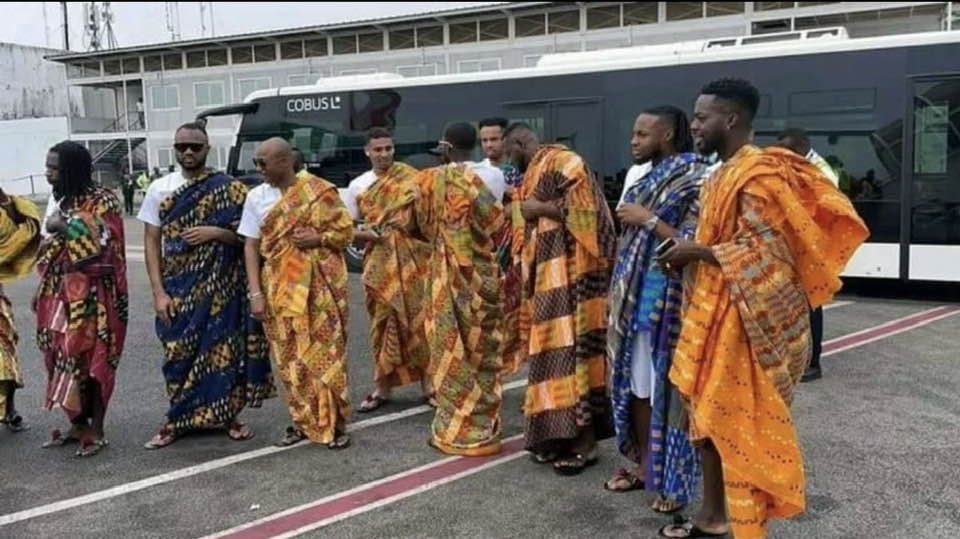
Within the ranks of these professional players from European leagues there are certain categories born to African migrant parents who have come through the European development system. The French call them “bi-nationaux”, that is, players born to African parents who have the advantage of having come through the European development system where the coaching, facilities and opportunities give them a distinct advantage over their counterparts growing up in Africa. Ali Fergani who was born in Onnaing, France to Algerian parents was the first African born in Europe to participate at AFCON, he captained the Desert Foxes to the Africa Cup of Nations 1980.
By the 1992 edition of the tournament in Senegal, the rank of African footballers born in Europe that took part in the then expanded 12-team championship had increased to four from the only French-born Ferghani in 1980. Joining Liazid Sandjak, who was born in Montreuil-sous-Bois, France and played professional football with Paris Saint-Germain F.C., OGC Nice, AS Saint-Étienne and Neuchâtel Xamax were Ali Bouafia, also of Algerian descent who was born in Mulhouse, France. Bouafia played in the midfield for the national team. This list also included fullback Reuben Agboola for Nigeria who hailed from Camden in London and had a Nigerian father. Agboola played for Sunderland and Swansea City, He was the first African born in Europe to play for Nigeria in any major tournament.
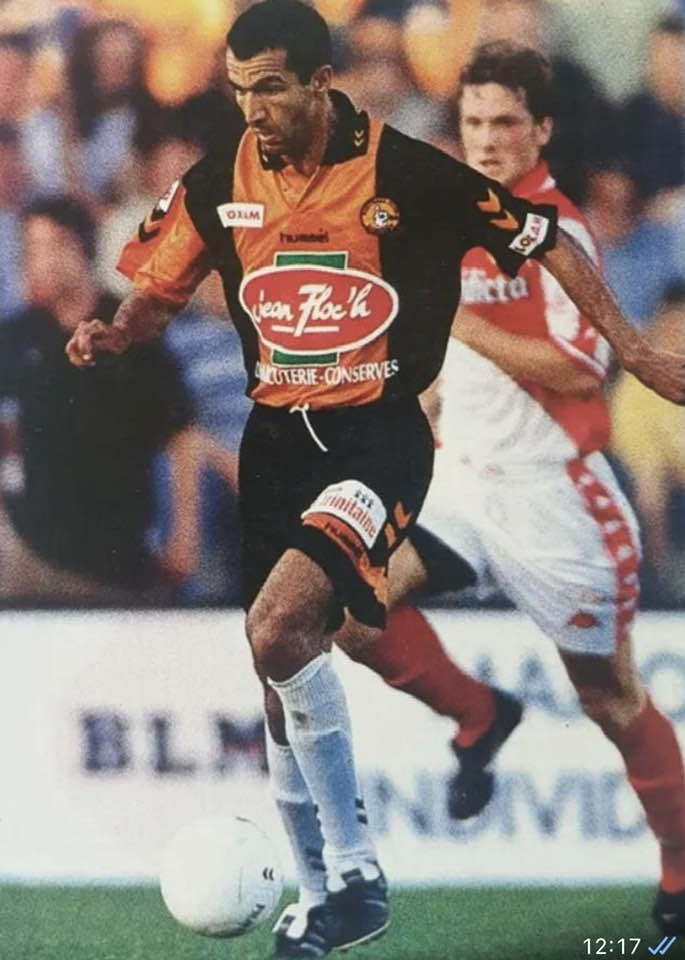
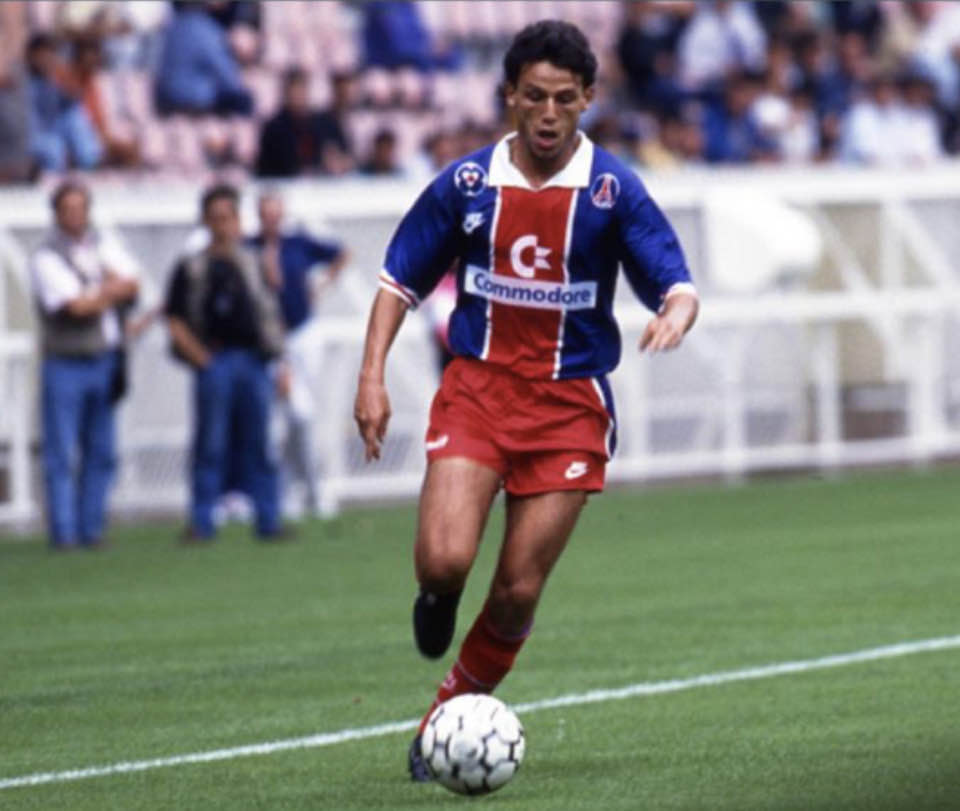
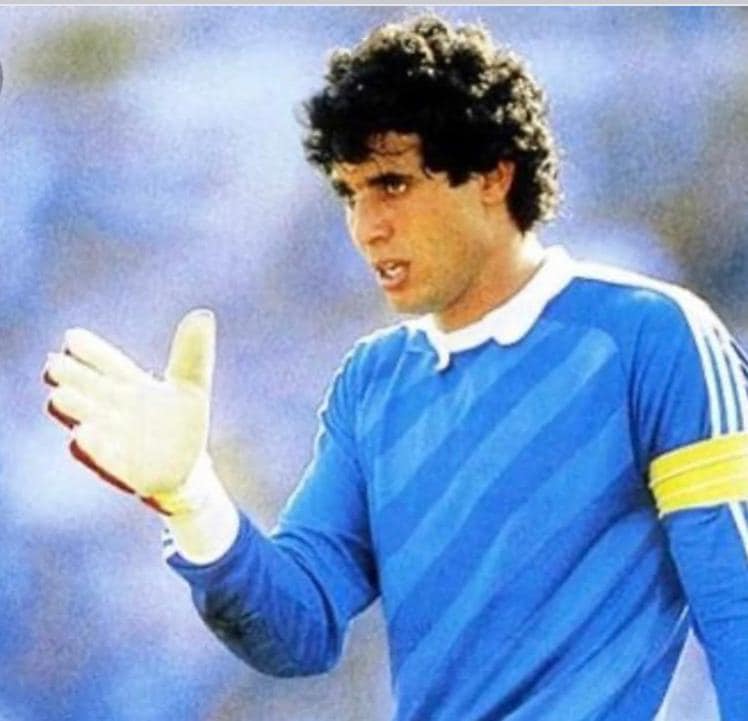

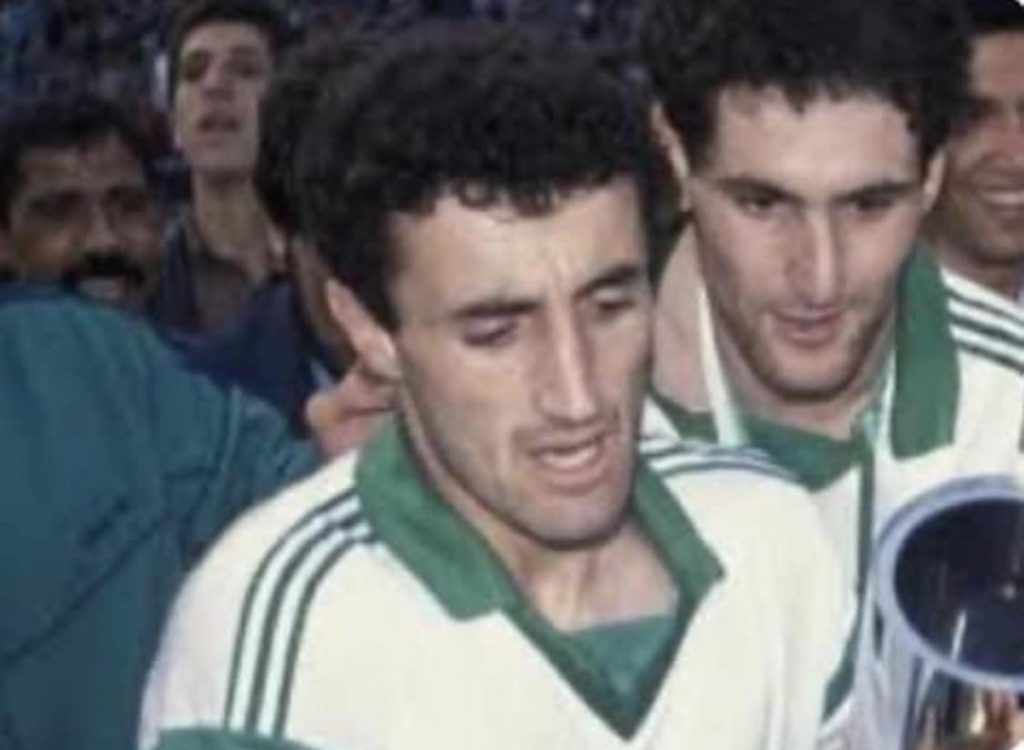
Anthony Baffoe, who was the first Europe-born footballer to play for Ghana national team and was capped 25 times for the Black Stars completed the fourth player of African descent born in Europe that participated in Africa Cup of Nations 1992. As a son of a Ghanaian diplomat, Baffoe was born near the former West German capital of Bonn, Bad Godesberg, and made a name for himself in the 1980s in the Bundesliga with FC Köln and Fortuna Düsseldorf.
The Jean-Marc Bosman ruling of 1995 that liberalized the freedom of movement for workers (footballers inclusive) across the EU and the rest of the world caused huge increase in exports of African talents to Europe, since then it has been a revolution of sort, from only Ferghani that participated in AFCON 1980, through the four in Baffoe of Ghana, Agboola of Nigeria and the two from Algeria – Sandjak and Bouafia that played in AFCON 1992 in Senegal.
The FIFA’s eligibility rule for switch of international allegiance that kicked off in 2004 was later modified to be even more flexible to give more opportunities for Africans born in the diaspora to be able to play for the countries of their ancestors.
In May 2008 at FIFA’s Congress as part of Blatter’s efforts to preserve the integrity of competitions involving national teams. FIFA later made the rule more flexible to permit players who have not played more than three full international matches for the countries of their births to switch allegiance to the countries of their ancestors as long as they are 21 years or below and have not played for the countries of their births for at least two years before the application
At AFCON 2021 that was hosted by Cameroon in January 2022, an astonishing 205 footballers of African heritage born in Europe from across 12 European countries sweated it out on the pitch for the countries of their ancestors due to these new FIFA rulings.
As the main international men’s football competition in Africa, AFCON has never lacked glamour, it has always attracted the crème de la crème of footballers on the continent. Among the players who had made their mark on the championship, one of the biggest tournaments in the world, were Malian Salif Keita, who was the first player to win the prestigious African footballer of the year award in 1970 and François M’Pelé of Congo Brazzaville. M’Pelé, the star of 1972 AFCON, was the PSG fourth leading goal scorer of all time with astonishing return of 97 goals in 217 appearances between 1973 to 1979. With legends like Thomas Nkono (Cameroon), Abedi Ayew Pele (Ghana), Raber Madjer (Algeria), Roger Milla (Cameroon), George Weah (Liberia), Nwankwo Kanu (Nigeria), the all-time goal scorer of the championship, Samuel Eto’o (Cameroon), Didier Drogba, up to recent generation of stars, the tournament has never be in shortage of super stars and the tradition will continue in this latest edition.
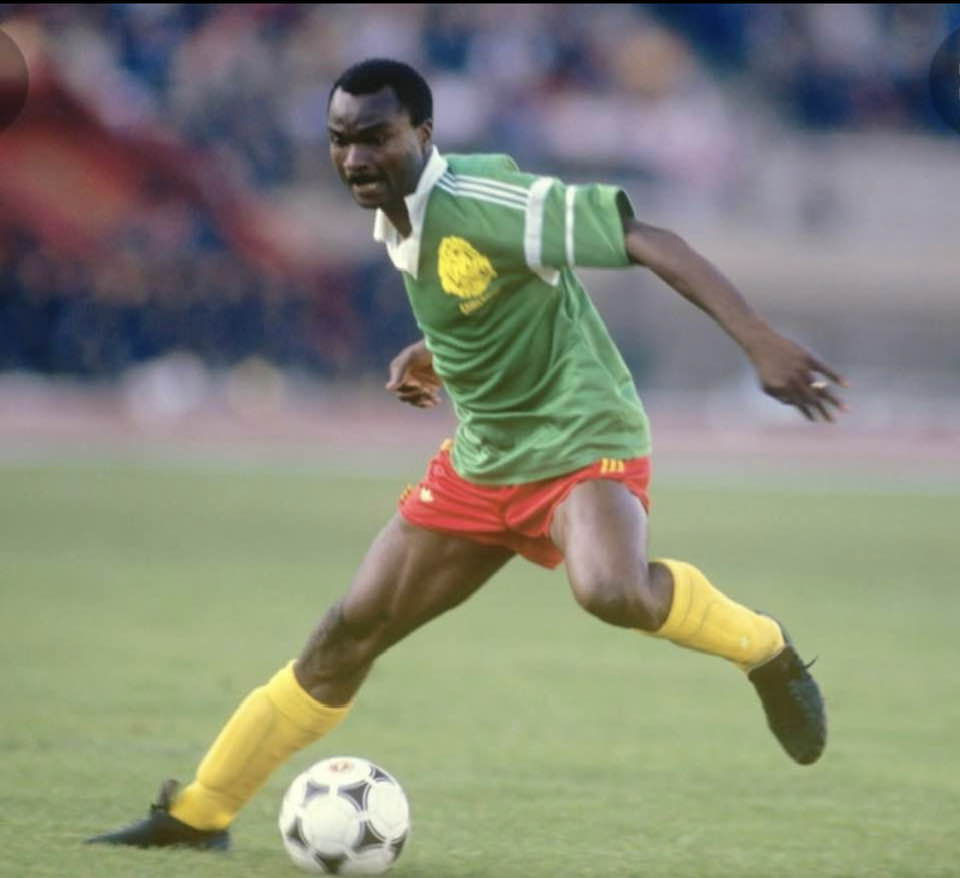

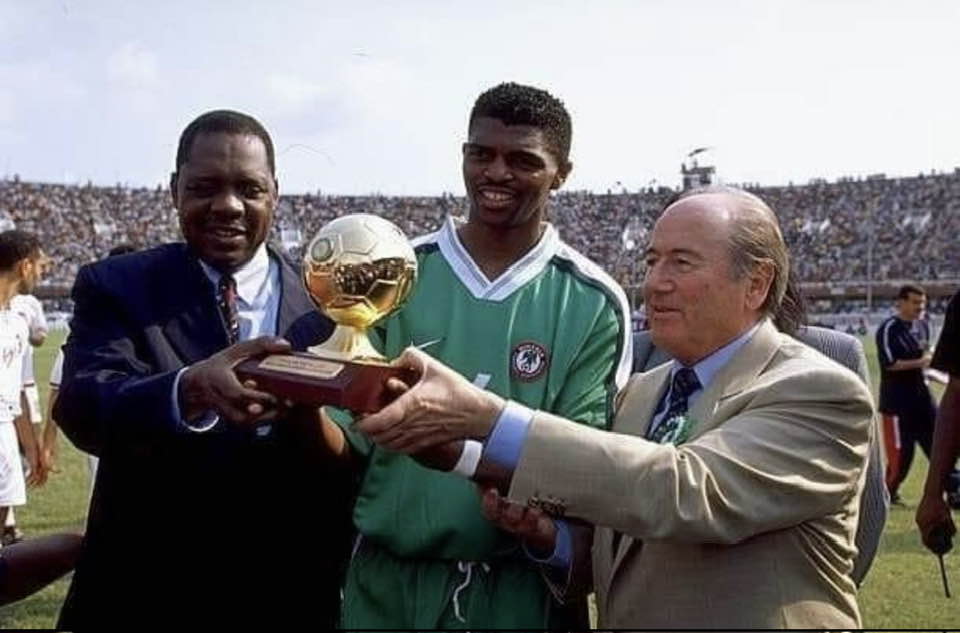
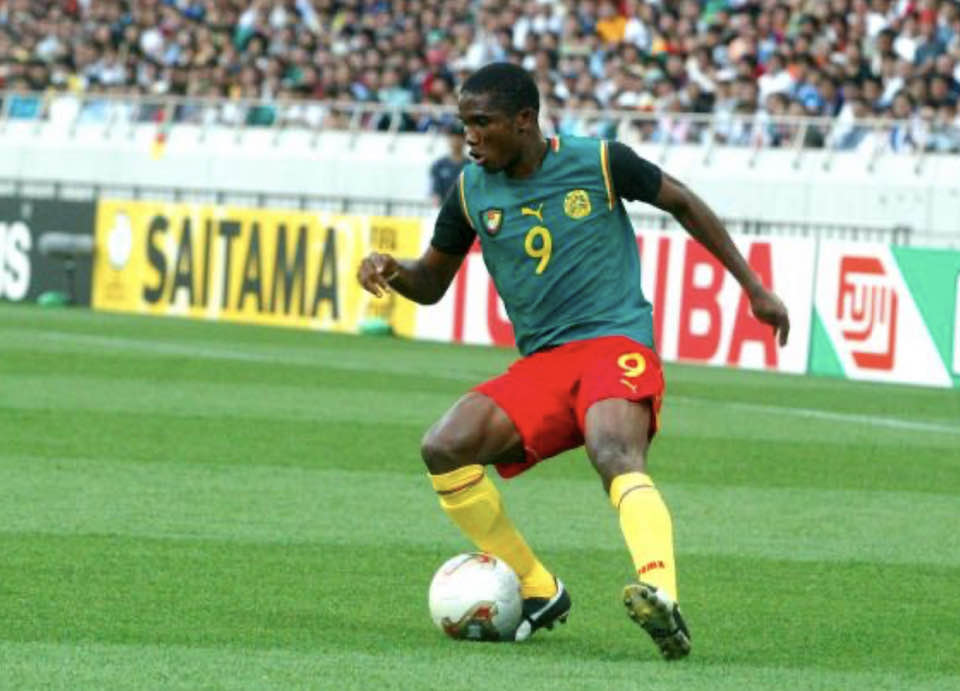
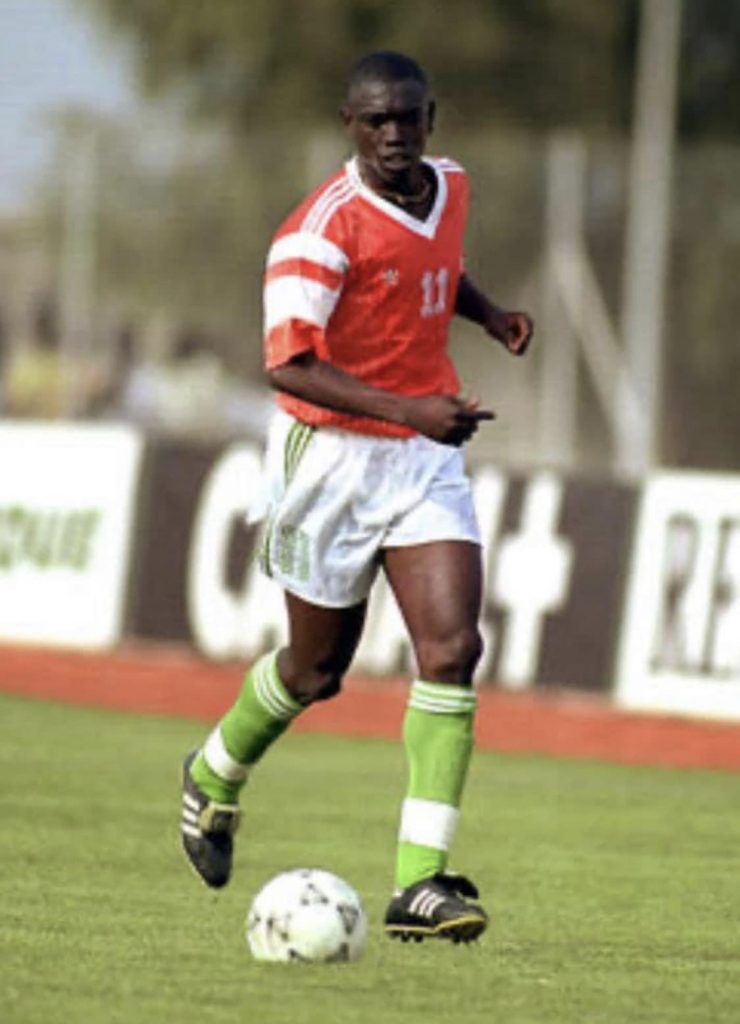

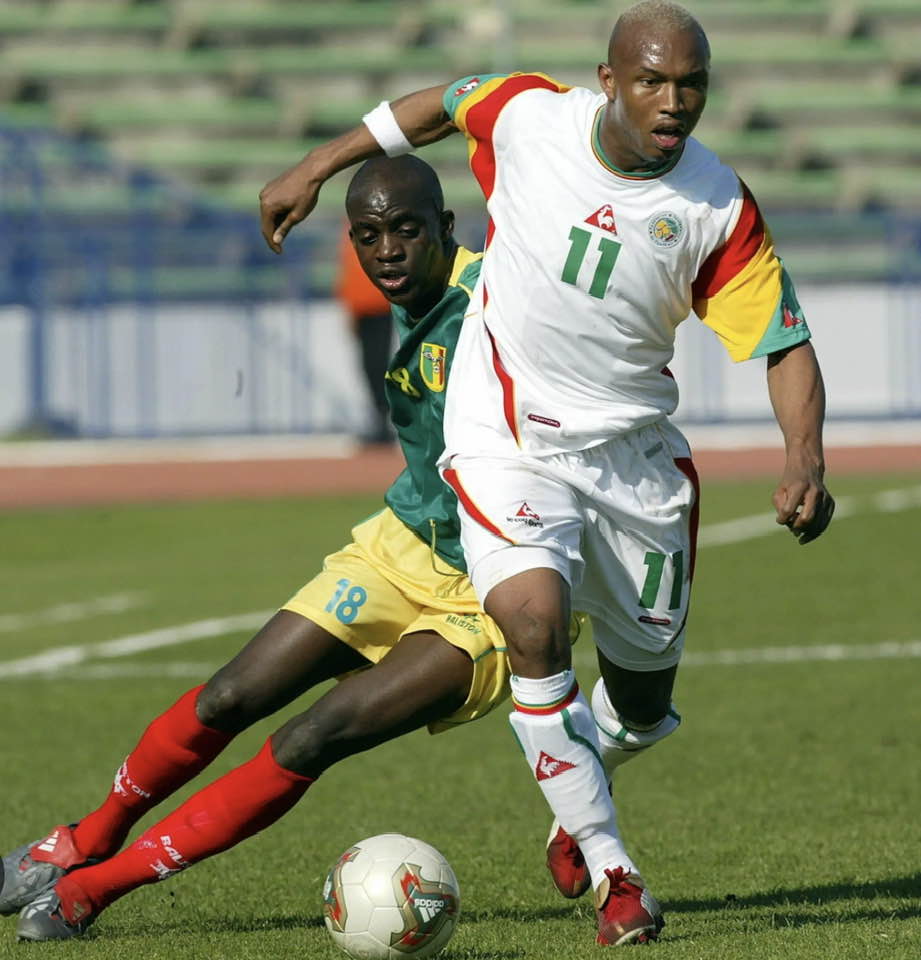
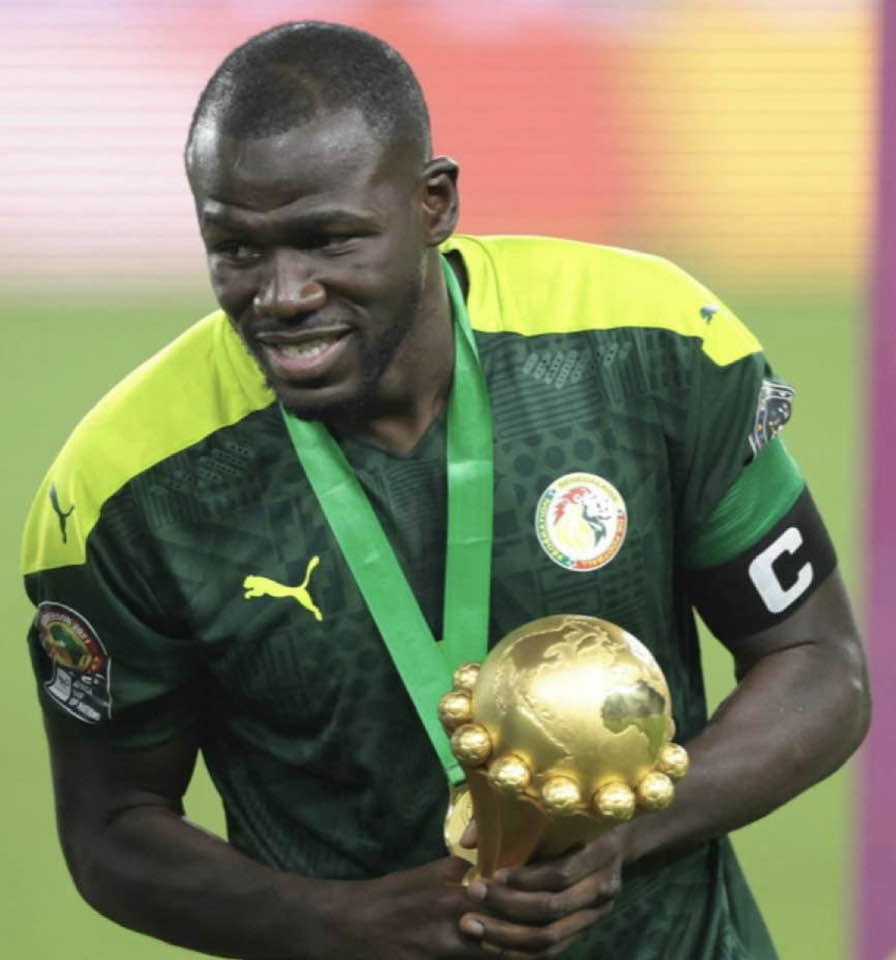
As the 34th Africa Cup of Nations gets underway, several clubs in Europe and other continents will be losing some star names for the duration of the championship. Liverpool forward Mohamed Salah will be ready to bend over backwards to end his country’s 14-year wait for continental success. Nigeria’s Victor Osimhen, after missing the 2021 edition through a combination of Covid-19 and injury, will no doubt work extra hard to inspire the Super Eagles to a first title since 2013. However, the newly-crowned African Footballer of the Year will definitely have Sadio Mane’s Senegal to contend with, as the defending champions hope to retain the title.
According to Senegal forward Mane, who plays his club football in Saudi Arabia, the plan of all the teams competing at the tournament is to depose Senegal, the defending champions.
“I cannot recall a stronger field. All the giants are going to be in Ivory Coast and all of them will be plotting to dethrone us. I believe this Nations Cup will be the toughest to win,” said the former Liverpool star.
References:
- Story of Africa Cup of Nations, Daily News of Egypt, March 2019
- “African Cup of Nations – How it all began”. BBC Sport. 14 December 2001.
- “Which national team has won the Africa Cup of Nations most times?”, Paul Reidy January 2022
- Stéphanie TROUILLARD, April 2016,
- Hans Groth; Alfonso Sousa-Poza, 26 March, 2012. Royal Institute for international affairs. 1979. p. 89.
- European-based African diaspora will be on show at Afcon – By Mark Gleeson 27 Dec 2021
Edited by Bimbo Ajayi
Co-Authors: Kehinde Fagbuaro & Bimbo Ajayi


